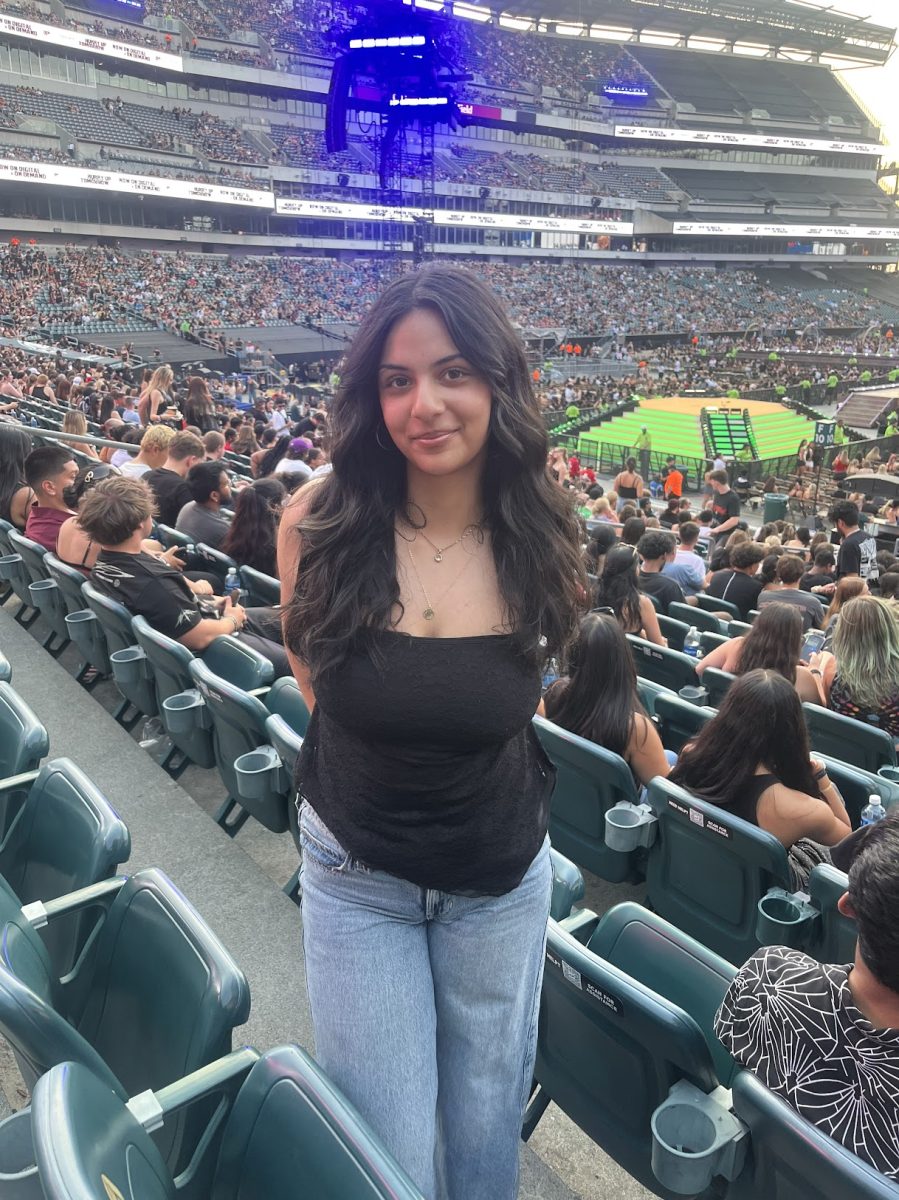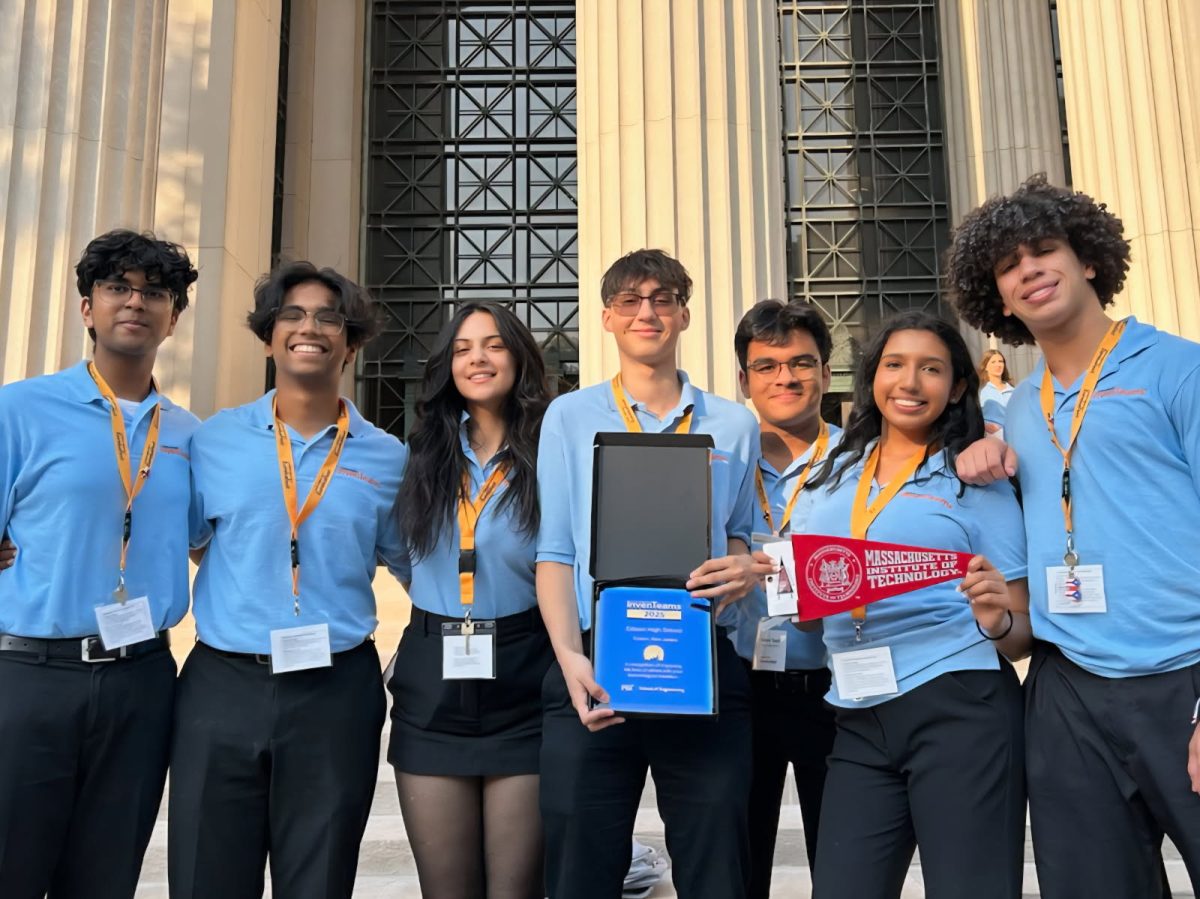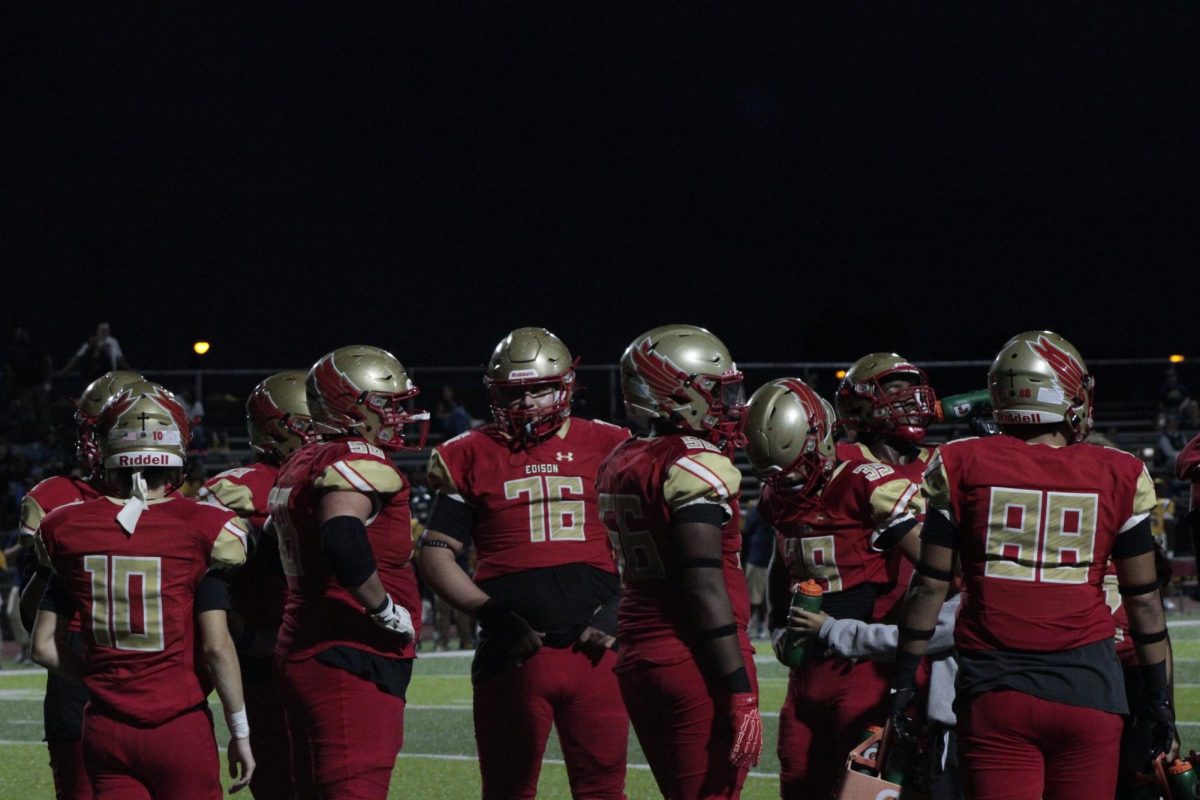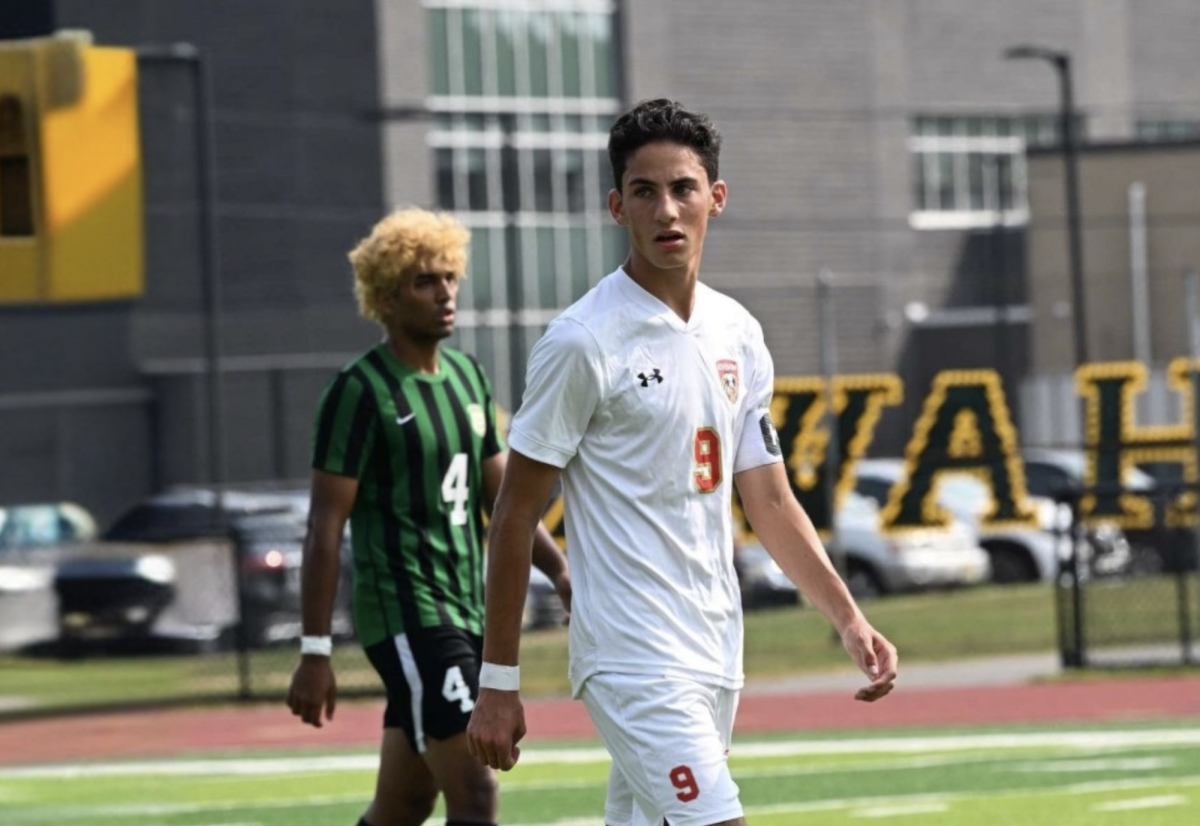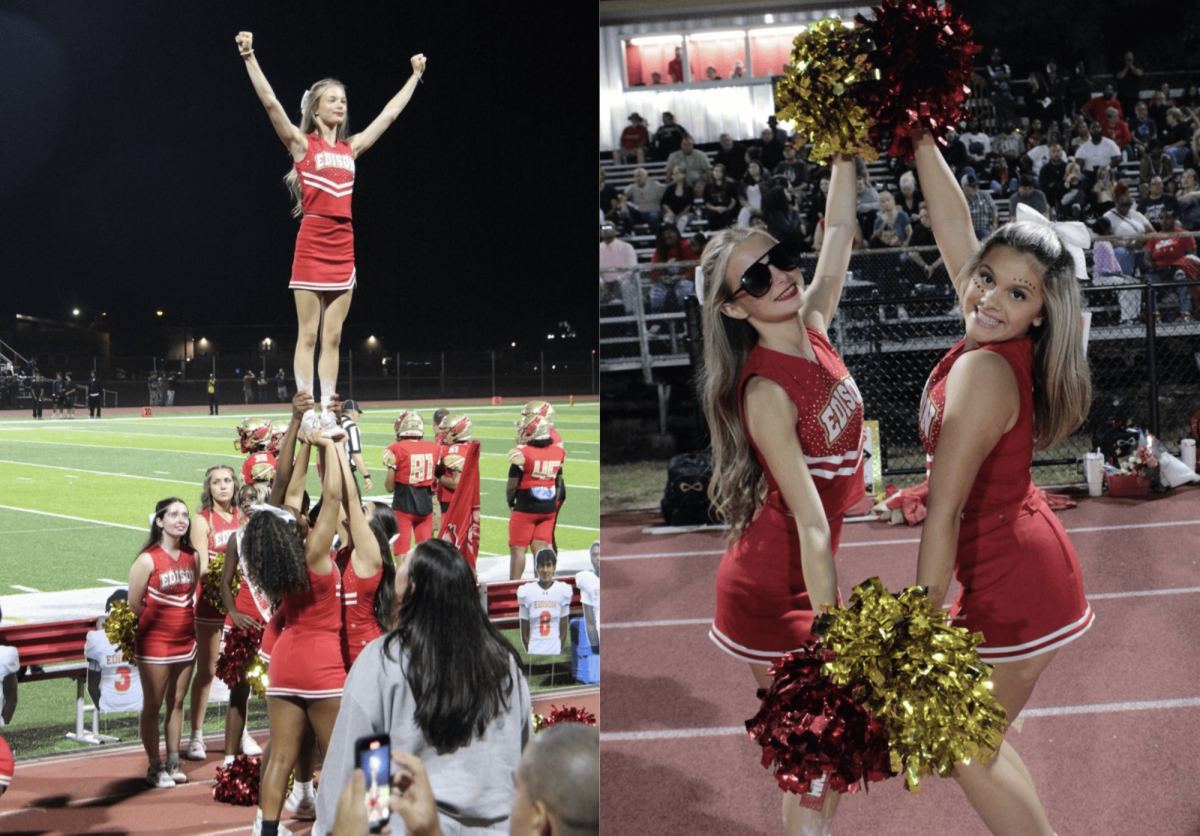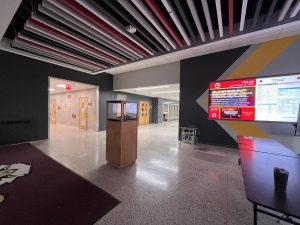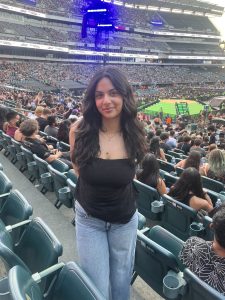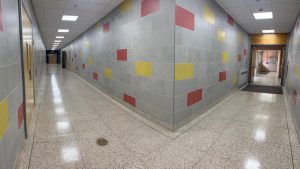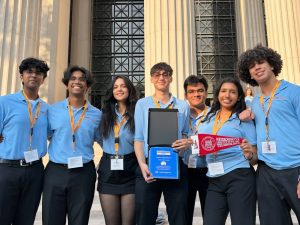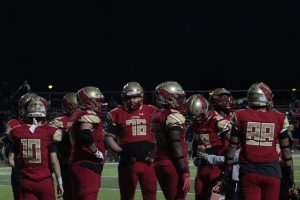A Call From Eagles Out of the Nest: Mehal Kashyap
June 15, 2021
You don’t have to map out your entire life to be remotely successful. Sometimes, the best gifts fall into your lap for being yourself. A proud EHS and STEM Academy alum, Mehal Kashyap ‘19 graduated high school with a general idea of pursuing computer science. Today, she is a rising junior at Carnegie Mellon University, partaking in intensive research opportunities in the computer science field.
The Eagle’s Eye contacted Kashyap for a chat about her experiences in applying to college as a STEM major and reconciling life with intensive study.
EE: How do you think the experiences of high school changed you?
MK: I made life-long friends. I still spend a significant amount of time with my friends from high school, and I still consider them to be some of my best friends. Honestly, I think the pandemic made it much easier to keep in touch with some of my older friends. However, I think that even without the pandemic, we would have remained great friends.
EE: If you could go back to freshman year of high school, is there any choice you would change? If so, why?
MK: I would get more sleep. No grade is worth your mental and physical health.
EE: Very true. So, did you pursue computer science as a hobby or a class in high school? How did that interest grow to become your major?
MK: I did not actually pursue computer science as a hobby! I became interested in robotics around 6th grade, and I pursued that all throughout high school. I enjoy creating, and I found that computer science was an oft-overlooked form of artistry.
EE: That’s a very poetic description. I can anticipate the answer to this next question: What major would you have pursued if not this one, and why?
MK: I would have pursued creative writing or journalism! I enjoy reading, writing, and analyzing literature.
More than just a “computer science nerd”, Kashyap makes time for other interests, fun, and hobbies. In introducing herself, she noted, “Currently, at CMU, I’m part of a fusion dance team named Jiya. A fun fact about me is that my name means petrichor!”
EE: As a follow-up, why did you originally pursue computer science, and what impact has engineering and STEM had on your life?
MK: I pursued computer science because it is a gateway to any career path. Computer science is merely problem solving–you can apply it to almost any field: finance, medicine, linguistics.
EE: How did you know that CMU was the right place for you? How do you recommend that students get to know a school and its campus, especially during COVID-19? Do you think you ended up in the right place?
MK: I didn’t know that CMU was the right place for me. I ended up choosing a school I felt would further my education. The best way to gauge whether you would be happy at a school is to see if you can find anyone that goes to that school and ask them about their experiences. They are more likely to paint a realistic view of the school.
EE: Speaking of the college process, what is your advice on standardized testing and the college application process? When do you suggest high schoolers start? What was the hardest part when applying for college?
MK: You should start writing your Common Application essay over the summer. The hardest thing about applying to college is the wait and the possible rejection. It is important to remember that there is more than one path to success—just because you couldn’t access one path does not mean that you cannot get to your destination.
EE: How has your understanding of your major and college, in general, changed, since you enrolled? Is there anything you wouldn’t have known about CMU until you attended it?
MK: Honestly, I didn’t understand what computer science was until I started studying it. Computer science is just an application of math–if you want to become good at computer science, you have to understand proper proof techniques.
EE: What types of experiences and opportunities, such as internships, have been most beneficial to you during your college career?
MK: Research opportunities. Research really helped me connect with faculty and learn essential skills in my field that weren’t taught in classes.
EE: Okay to end our game of Twenty Questions: what would be your main piece of advice to current high schoolers, in general, and specifically for those pursuing careers in comp sci?
MK: Capitalism tries to convince you that you need to love your job and that you need to work hard during your youth in order to be successful when you are older. You do not. You need to find a job that will give you financial stability. Then, you can invest your money and use your free time to pursue what you really love, whether that be spending time with friends and family, gardening, painting, et cetera.





































